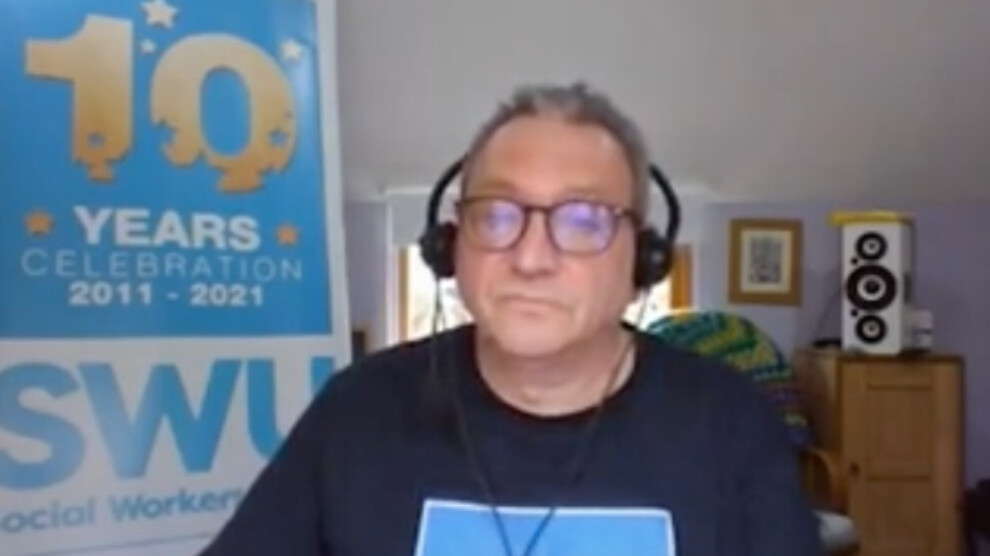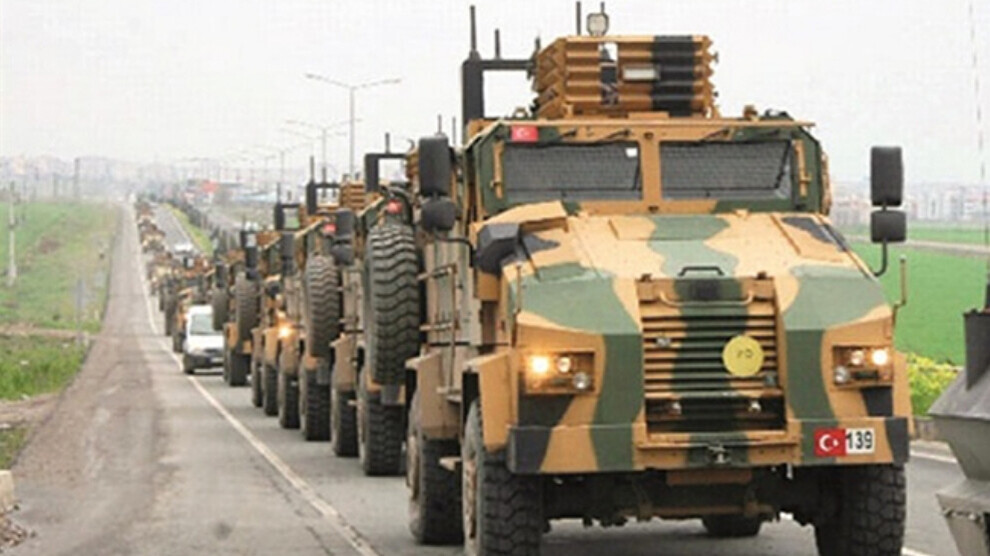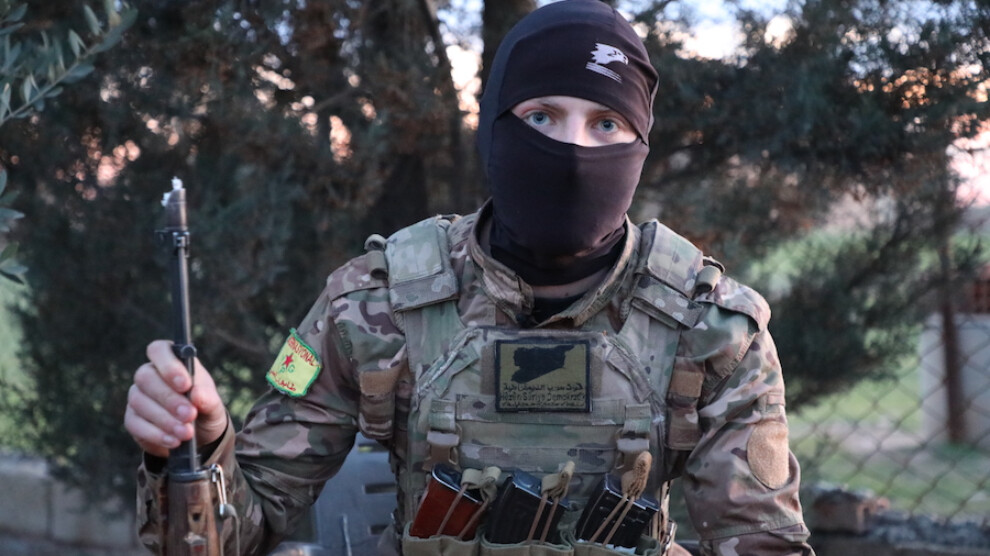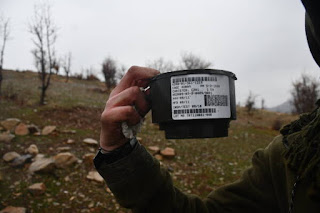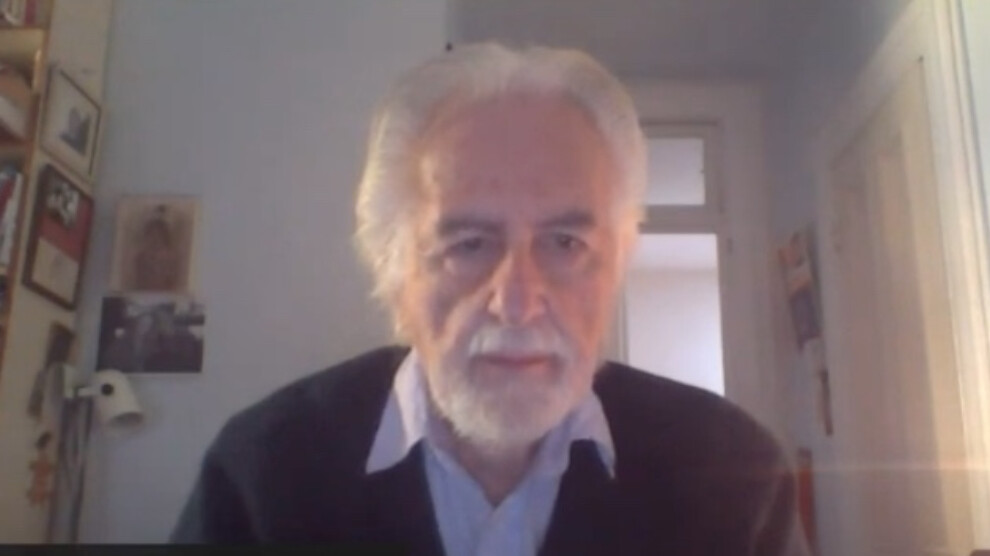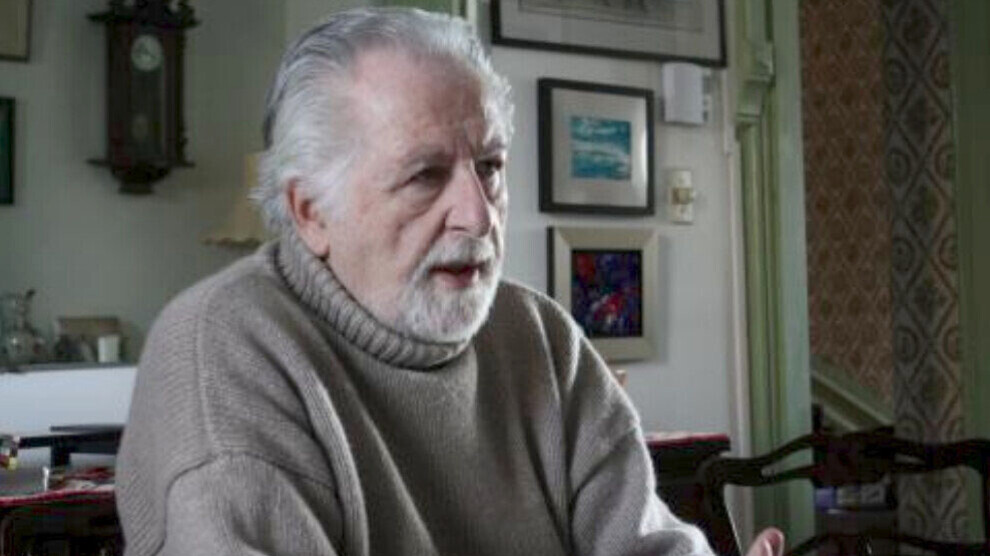How Uganda’s endangered mountain gorillas survived the pandemic
Relationships between forest dwellers and the animals have deteriorated in recent years, especially during the pandemic.
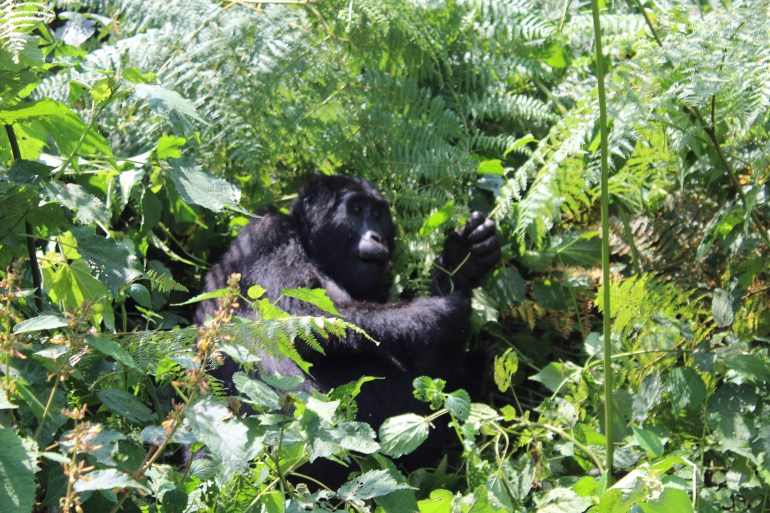
A gorilla trapped in a snare in Bwindi forest, Uganda
[File: Jack Dutton/Al Jazeera]
By Jack Dutton
Published On 5 Apr 2022
Bwindi, Uganda – According to legend, the Batwa pygmy forest dwellers of southwestern Uganda have lived in the Bwindi Impenetrable Forest for more than 300 years, sharing their home with the majority of the world’s endangered mountain gorillas, but also being wary of them.
If the Batwa met a gorilla in the forest on the way to a hunt, they would feel like they met a bad omen, Wilber Tumwesigye, one of the Bwindi ranger guides told Al Jazeera.
“They would then think that they’re not going to be successful, so what they did was go back home,” he said. “They saw them as a bad animal. That’s also why I think these gorillas have survived. If it wasn’t for that, they would be spearing them and eating them.”
The forest is home to approximately 500 mountain gorillas, nearly half of the world’s gorilla population. In 1991, when Bwindi was established as a national park for the gorillas, authorities controversially evicted the Indigenous people from the forest, to nearby districts.
Still, humans and gorillas continued to interact. Conservationists and tourists often go gorilla trekking in the forest, and villagers often come into the park to look for food and natural resources. Sometimes, the primates also come to nearby villages to feed on farmers’ crops.
In 2020, the COVID-19 pandemic began and that wiped out tourism in Bwindi, but interactions between the gorillas and villagers conversely increased. Between March and October 2020, at the height of the pandemic, the park was closed to the public.
During that period, illegal poaching for bushmeat also skyrocketed.
“Over the six-month period, we collected 832 snares – that translates to around 150 snares in a month,” said Nelson Guma, chief warden for the Bwindi Mgahinga Conservation Area (BMCA). “Before the lockdown, in a year, we would get around 20.”
The snares help catch bush meat – such as antelope, duiker and bushpigs – for the hunter’s consumption and to sell to community members.
“A bush pig can fetch up to 100,000 shillings ($28),” says Nahabwe Job, 45, a Bwindi conservation ranger in Buhoma, a village on the northern edge of the park. He is a member of the Human Gorilla Conflict Group (HUGO), established in 1998 to mediate human-gorilla conflicts.
Charles Tumwesigye (unrelated to Wilber), deputy director, field operations at the Uganda Wildlife Authority (UWA), saw similar spikes in illegal poaching in national parks across the country.
“People left town because they couldn’t work. They were redundant and we thought that many youths who were working in towns, because of the lockdowns, had gone and set snares in the parks,” he said.
“[Also] even the rangers who go out to monitor illegal activities were not going to work, so the poachers thought: ‘Now there is a lockdown, nobody can go so it’s an opportunity for us to go and set snares without being caught.’”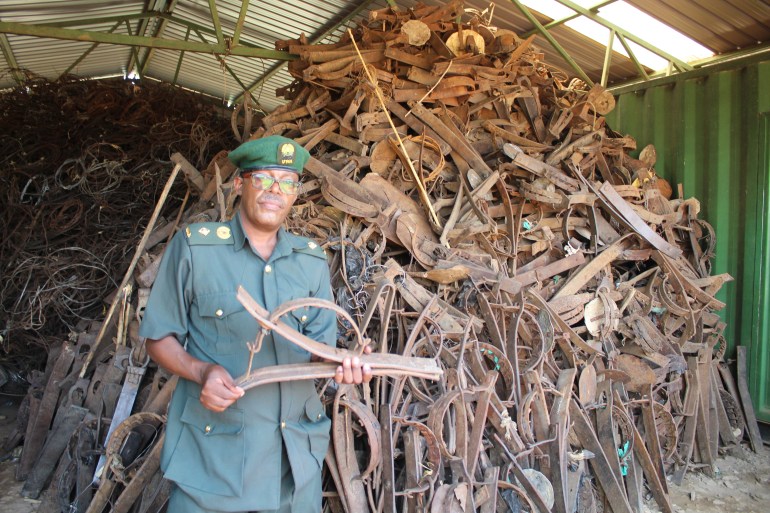
Ugandan Wildlife Authority’s Chief Park Warden of Murchison Falls Edison Nuwamanya, standing by snares villagers use to capture wild animals for bush meat
[File: Jack Dutton/ Al Jazeera]
Before the pandemic, tourism made up 7.7 percent of Uganda’s GDP. Bwindi alone brought in $2m monthly and accounted for 60 percent of UWA’s revenue.
By the end of 2020, local businesses close to the park – safari lodges, tour companies, souvenir shops – all but closed down. The villages around the park usually get 20 percent of the total funds from the gorilla tracking permits tourists buy for Bwindi.
The money is paid annually and goes towards community projects, such as new schools and health centres. But in 2020 and 2021, they were not given that money because of the dramatic drop in tourism, Guma said.
Death and deterrence
In June 2020, one of Uganda’s best-known mountain gorillas was killed by a poacher. Rafiki, a 25-year-old large silverback who led a group of 17 gorillas, was speared to death by a poacher who had set traps to catch bush meat.
In his testimony, the suspect said he had come to check on the traps when he saw Rafiki’s group there. The man said the animal saw him as a threat and attacked him, so he had to lunge at Rafiki in self-defence.
A court handed the perpetrator an 11-year prison sentence – the longest anyone has ever been put in jail for killing a wild animal in Uganda.
Rafiki’s group was habituated, meaning that the apes were used to human contact and would not usually act aggressively. Job said the communities were “shocked” after Rafiki’s death, so the UWA and villagers had to implement a conservation action plan to prevent a repeat incident in future.
Gorillas were often coming out of the park and into villages, where they would feed on farmers’ crops and vegetation like eucalyptus trees for their high salt content. Villagers were encouraged to replace these trees with crops like tea and coffee, which are unpalatable to the great apes but are good revenue earners.
The UWA established “flight camps” — bases of 24 rangers situated in hunting hotspots in the national park to stop poaching and the gorillas getting caught in the traps. Four camps were initially established, with rangers patrolling eight-kilometre radiuses, and three remain active, Guma said. The camps deterred poachers from laying traps in the forest, shifting location depending on the position of poachers.
Five HUGO members, individuals in the community who have received conservation training – are stationed in each village next to Bwindi. During the pandemic, they met regularly and also herded gorillas back into the forest whenever they came into the villages and the wildlife authority was not present.
Without tourism, many villagers living close to the park were without income and much food, so the UWA and local conservationists supplied villages with fast-growing seeds — such as pumpkins, tomatoes, onions and amaranths — for sustenance. Community members were also educated about conservation issues and the health risks of eating bushmeat.
Villagers, especially those working in the park, like the porters and rangers, were encouraged to get vaccinated to protect the gorillas from COVID-19. Tourists were also told to wear masks, sanitise and social distance from the gorillas to protect them from airborne diseases.
COVID-19 concerns
Since Rafiki, no other gorillas have died amid a surge in poaching during the pandemic and since 2020, there have been at least 34 new births, according to Guma. Still, concerns about COVID-19 remain.
“It’s one of the things that keeps me awake at night, especially when you’ve had these variants, the Delta and the Omicron variant which is very, very contagious,” veterinarian and gorilla expert Dr Gladys Kalema-Zikusoka said.
Although there have been no confirmed cases of COVID-19 in Bwindi’s gorillas, the disease has quickly spread among gorillas in zoos in Atlanta, Prague and San Diego.
Humans share about 98.4 percent of their DNA with gorillas. “The cost of illness was similar to humans, where the eldest aged Silverback got very, very ill, it was 48 years old, and he had to get monoclonal antibodies, which is a very expensive treatment for COVID,” the vet said.
In the wild, gorillas move around in groups and silverbacks – older dominant males – may fight among themselves, meaning that a virus can quickly spread.
If COVID-19 spread to the endangered population, Kalema-Zikusoka said, they would require 24-hour monitoring and quarantining, which would be “a total nightmare” because they are wild animals.
Currently, only 6.5 percent of Ugandans are fully vaccinated against COVID-19, but she argued that when the vaccine is widely available, it should become mandatory. “The community of Bwindi knows that if they want tourism to come back like it was before, they need to be vaccinated,” she said.
SOURCE: AL JAZEERA
